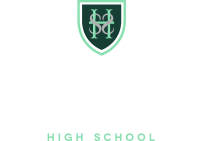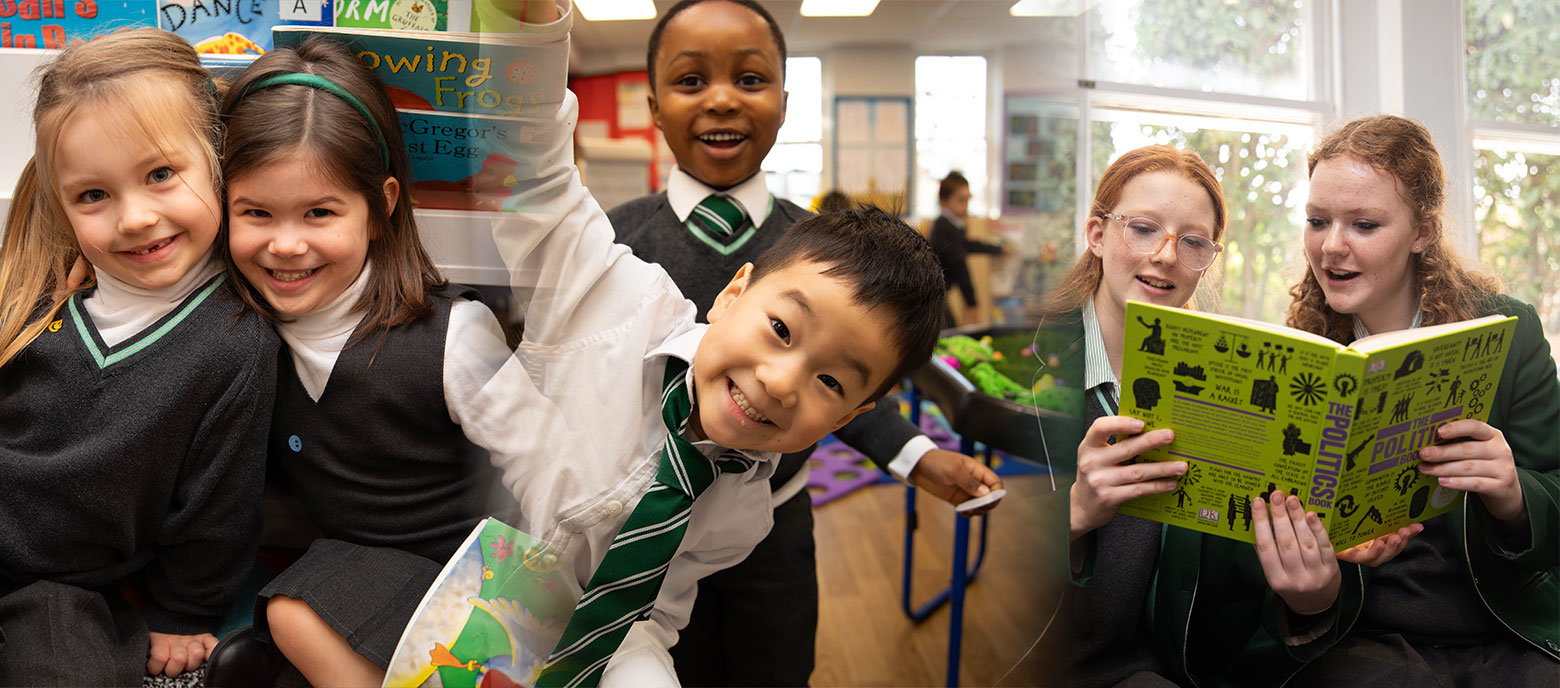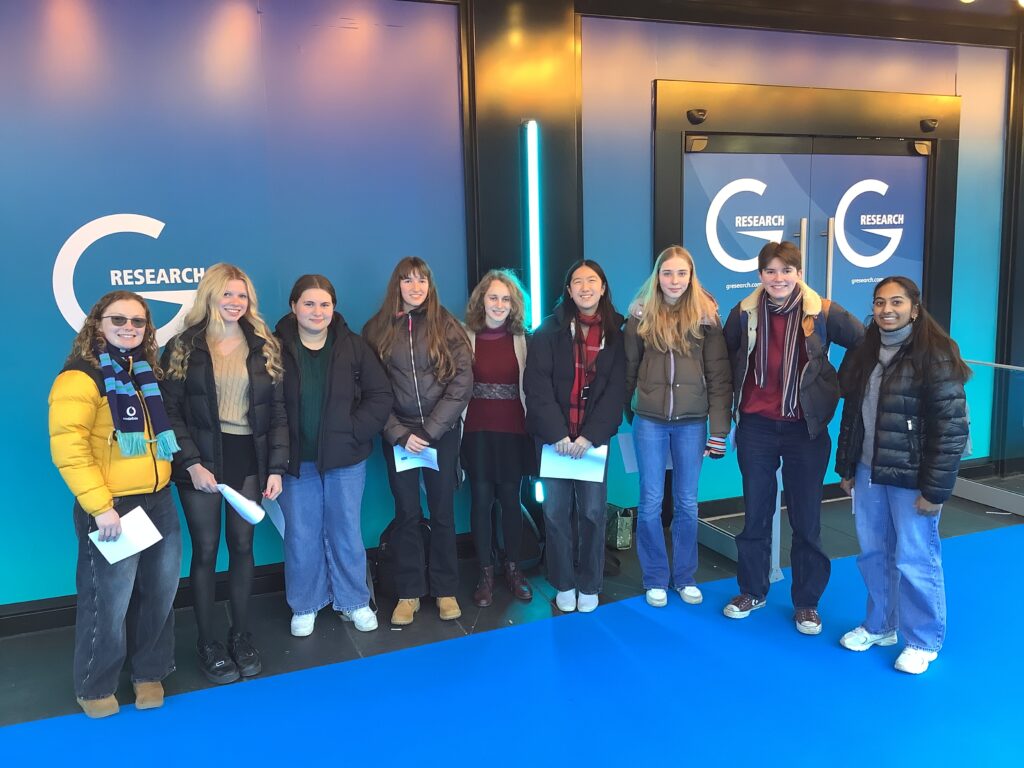On Tuesday 16 January, the Year 12 physicists headed to the Odeon in Leicester Square for the G Research Distinguished Speaker Symposium 2024 on The Future of Chips and Electronics. In some very comfortable seats and with a bag of popcorn, we listened to three talks covering a range of viewpoints on where advances might occur, both from a computer science and materials science perspective. A few student reflections are below:
“We heard three talks by outstanding individuals working with technology and microchips. The most fascinating, in my opinion, was a talk about the properties of graphene by the Nobel prize-winning physicist, Sir Andre Geim. It was incredibly inspiring, and I learned many surprising applications of graphene, from improving the efficiency of light bulbs to recycling microchips by filtering them for gold. I even had the chance to ask the speaker a question after the talk. Following the speeches, there was a reception where we tried some very good canapés and had the opportunity to network with people from the company.” – Dasha
“The presentations organised by G Research left a profound impact on us. James Ashton’s talk delved into the history of Arm, a leading technology provider in processors and microchips. Exploring their journey from a startup into their three-decade evolution, especially their ties with Apple, provided fascinating insights.
Following that, Michael Kagan, the CTO of NVIDIA, shared captivating perspectives on AI development. As a computer science and physics student, it was intriguing to see his views on the future of technology, including the realm of quantum computing. His discussion on accelerated computing, coupled with his vision for the future of AI, opened up a spectrum of possibilities.
The final presentation by Sir Andre Geim centered around the properties of graphene and explaining the science behind phenomena like massless Dirac fermions and Klein tunnelling. His captivating progress in graphene research and its potential applications, such as thermal management, medical devices, and ultra-high-frequency electronics, was very thought-provoking. Overall, the evening was extremely enjoyable, and I would like to say a massive thank you to Dr Calverley for organising this trip.” – Sabia
Categories: Uncategorised











